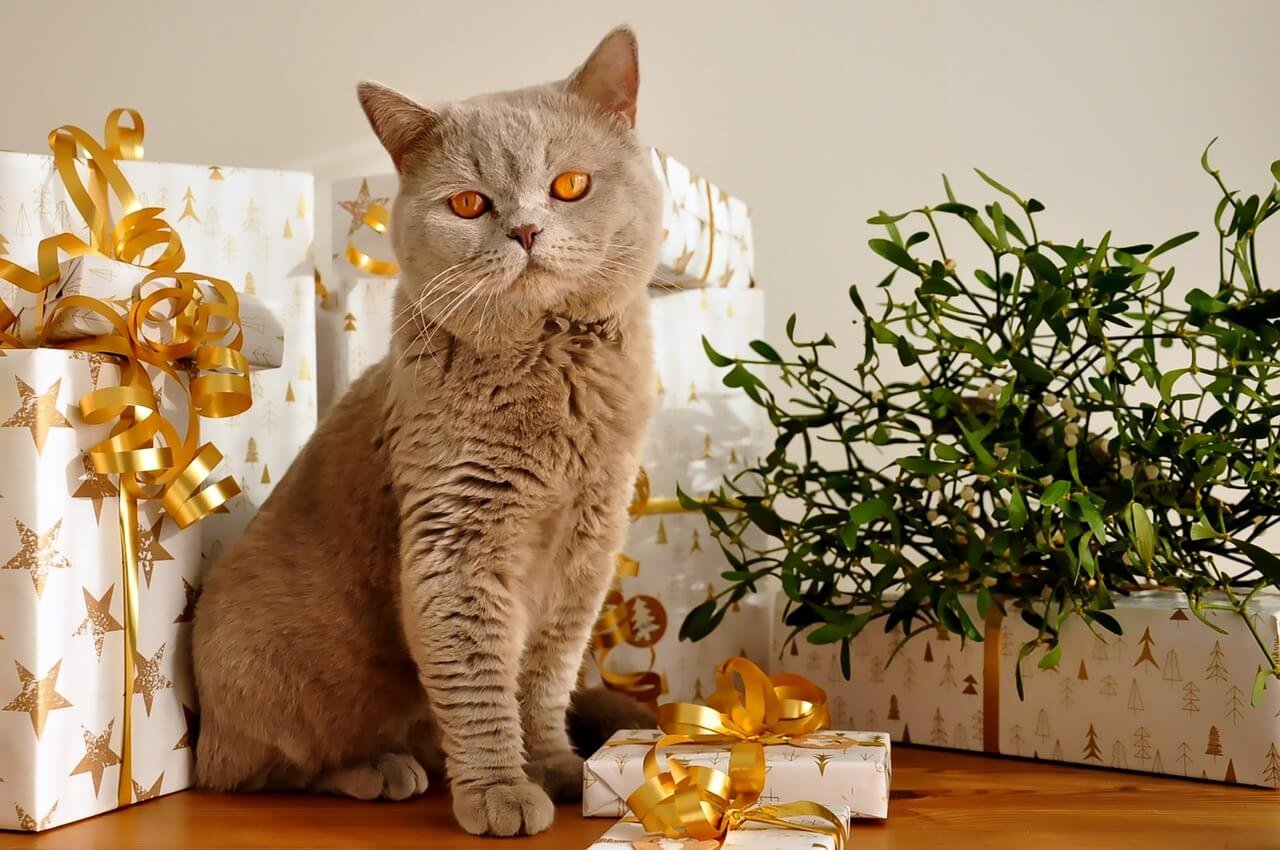Why Is My Cat Dragging Their Butt?
If you’ve ever caught your cat dragging their rear end across the floor, you might be puzzled—or even a little concerned. Known as “scooting,” this behavior is often a sign that something isn’t quite right in your feline friend’s body. While it may look amusing or strange, scooting can indicate discomfort or an underlying health issue that requires attention. Understanding the possible causes and knowing how to address them can help ensure your cat stays happy and healthy. Let’s explore why cats engage in this behavior and what you can do about it.
Common Causes of Scooting Behavior in Cats
Scooting is not just a quirky habit—it’s often a symptom of an underlying problem. Identifying the root cause is essential for addressing your cat’s discomfort effectively.
Anal Gland Issues:
Cats have small glands near their anus that produce a smelly fluid. If these glands become impacted or infected, it can lead to irritation and scooting.Parasites Like Worms:
Intestinal parasites such as tapeworms or roundworms can irritate the rectal area, prompting your cat to drag their butt in an attempt to relieve the discomfort.Skin Irritation or Allergies:
Allergic reactions or skin conditions around the anal area can cause itching and inflammation, leading to scooting behavior.Constipation or Digestive Problems:
A buildup of stool or difficulty passing feces can put pressure on the rectum, causing your cat to scoot as they try to find relief.Injury or Foreign Objects:
Cuts, bites, or foreign objects lodged near the anus can irritate the area, making scooting a way for your cat to cope with the pain.
Understanding these potential triggers allows you to take appropriate action and consult your veterinarian if needed.

Signs Your Cat Needs Veterinary Attention
While occasional scooting might not be alarming, certain signs indicate that your cat needs professional care. Recognizing these symptoms early can prevent complications.
Frequent or Persistent Scooting:
If your cat scoots multiple times a day or over several days, it’s time to investigate further.Visible Swelling or Redness:
Check the area around your cat’s anus for swelling, redness, or discharge, which could signal infection or injury.Excessive Licking or Chewing:
Constant grooming of the hindquarters may suggest irritation or discomfort that requires attention.Changes in Bowel Movements:
Diarrhea, constipation, or blood in the stool can accompany scooting and point to digestive issues.Behavioral Changes:
If your cat seems unusually lethargic, irritable, or avoids being touched near their rear end, it could indicate pain or discomfort.
These signs should prompt a visit to the vet to rule out serious conditions and provide relief for your furry companion.
Check this guide 👉 Why Is My Cat Panting in the Car? Best 7 Expert Care Tips!
Check this guide 👉 Why Does My Cat Lick My Hair? Best 7 Expert Care Tips!
Check this guide 👉 Why is My Cat Foaming at the Mouth? Best 7 Expert Tips!
Possible Causes of Scooting | Ways to Address the Issue |
|---|---|
Impacted or infected anal glands | Schedule a vet visit for gland expression or treatment |
Parasitic infections like worms | Administer deworming medication as prescribed by the vet |
Skin irritation or allergies | Use hypoallergenic products and consult a vet for allergy management |
Constipation or digestive blockages | Increase fiber intake and monitor hydration levels |
Injuries or foreign objects | Inspect the area carefully and seek veterinary care if needed |
How to Prevent Scooting Behavior in Cats
Prevention is key to keeping your cat comfortable and avoiding recurring scooting episodes. These proactive steps can help maintain their overall well-being.
Regular Grooming:
Keep the area around your cat’s anus clean and free from matted fur, especially for long-haired breeds.Monitor Diet and Hydration:
Ensure your cat has a balanced diet rich in fiber to support healthy digestion and regular bowel movements.Routine Vet Check-Ups:
Schedule annual exams to catch potential health issues before they escalate into bigger problems.Deworming Treatments:
Regularly administer deworming medications as recommended by your vet to prevent parasitic infections.Provide Mental and Physical Stimulation:
Engage your cat with toys and activities to reduce stress, which can sometimes contribute to abnormal behaviors like scooting.
By incorporating these practices into your routine, you can minimize the chances of your cat developing scooting habits.
Home Remedies to Soothe Your Cat’s Discomfort
If your cat is experiencing mild discomfort from scooting, there are simple home remedies you can try to ease their symptoms temporarily.
Warm Compresses:
Apply a warm, damp cloth to the irritated area to reduce inflammation and soothe the skin.Gentle Cleaning:
Use pet-safe wipes or a damp cloth to gently clean the area around your cat’s anus, removing dirt or debris.Increase Fiber Intake:
Add pumpkin puree (unsweetened) to your cat’s food to promote smoother bowel movements and alleviate constipation.Anti-Itch Creams (Vet-Approved):
For minor skin irritation, use a vet-recommended topical cream to relieve itching and redness.Observe Behavior Closely:
Monitor your cat’s behavior after trying these remedies to determine if the issue improves or worsens.
While these remedies can offer temporary relief, always consult your veterinarian if the problem persists.
Additional Tips for Long-Haired Cats
Long-haired cats are more prone to scooting due to their thick coats, which can trap dirt and debris around sensitive areas. Here are some tips to help manage this issue.
Trim Excess Fur Around the Rear End:
Use pet-safe scissors to trim hair near the anus to prevent matting and irritation.Bathe Your Cat Regularly:
Gentle bathing can remove trapped dirt and reduce the risk of skin irritation.Check for Mats Daily:
Inspect your cat’s fur daily for mats or tangles that could cause discomfort or hygiene issues.Use Pet-Safe Powders:
Dusting powders designed for pets can absorb moisture and prevent irritation in hard-to-reach areas.Consult a Professional Groomer:
If grooming feels overwhelming, enlist the help of a professional groomer familiar with long-haired breeds.
Proper grooming minimizes the likelihood of scooting and keeps your long-haired cat looking and feeling great.
How to Identify and Treat Anal Gland Problems
Anal gland issues are among the most common culprits behind scooting behavior. Learning how to identify and address these problems can save your cat from unnecessary discomfort.
Look for Foul Odors:
A strong fishy smell near your cat’s rear end may indicate anal gland issues.Watch for Difficulty Defecating:
Straining during bowel movements can signal impacted glands requiring attention.Feel for Swollen Glands:
Carefully palpate the sides of your cat’s anus for firm, swollen lumps, which may indicate blockages.Seek Professional Help:
If you suspect anal gland problems, schedule a vet appointment for safe and effective treatment.Maintain a High-Fiber Diet:
Fiber-rich foods encourage natural gland emptying, reducing the risk of future impactions.
Timely intervention ensures your cat’s anal glands remain healthy and functional.
When to Consider Behavioral Training
Sometimes, scooting stems from behavioral rather than medical causes. Addressing these habits through training and environmental adjustments can make a difference.
Redirect Attention:
Distract your cat with toys or playtime when they start scooting to break the habit.Create a Stress-Free Environment:
Minimize stressors like loud noises or sudden changes in routine, which can trigger compulsive behaviors.Reward Positive Behavior:
Praise your cat when they avoid scooting and reward them with treats or affection.Introduce New Activities:
Provide interactive toys or climbing structures to channel excess energy into productive outlets.Consult a Behaviorist:
If scooting persists despite your efforts, seek advice from a certified animal behaviorist.
Addressing behavioral factors can complement medical treatments and improve your cat’s overall quality of life.
Frequently Asked Questions About Cats Dragging Their Butts
Is it normal for cats to drag their butts?
No, it’s not typical behavior and usually indicates discomfort or an underlying issue.
Can I express my cat’s anal glands at home?
It’s best to leave this task to professionals, as improper technique can cause injury.
How do I know if my cat has worms?
Look for symptoms like weight loss, vomiting, or visible worms in feces.
Should I be worried if my cat only scoots occasionally?
Occasional scooting isn’t always serious, but monitor for other symptoms and consult a vet if it persists.
What should I do if my cat’s scooting is accompanied by a foul odor?
Schedule a vet visit, as this could indicate an anal gland infection or blockage.
Ensuring Your Cat’s Comfort and Health
Scooting may seem like a harmless or humorous behavior, but it often signals discomfort or a health issue that deserves attention. By understanding the potential causes, recognizing warning signs, and taking preventive measures, you can keep your cat feeling their best. Remember, your veterinarian is your greatest ally in diagnosing and treating any underlying problems. With proper care and vigilance, you can ensure your feline friend remains happy, healthy, and free from the urge to drag their butt across the floor.
Cat Anaphylactic Shock Treatment Costs: Best 7 Expert Tips! – Learn about costs, treatments, and financial aid options to save your cat’s life.
Exocrine Pancreatic Insufficiency in Cats: Best 7 Tips! – Learn to spot symptoms, manage EPI effectively, and improve your cat’s quality of life with expert advice.
Cost of Dog Anaphylactic Shock Treatment: Best 7 Tips! – Learn about emergency costs, financial planning, and ways to manage expenses for your dog’s care.
Exocrine Pancreatic Insufficiency in Dogs: Best 7 Tips! – Learn to spot symptoms, manage EPI effectively, and improve your dog’s quality of life with expert guidance.





